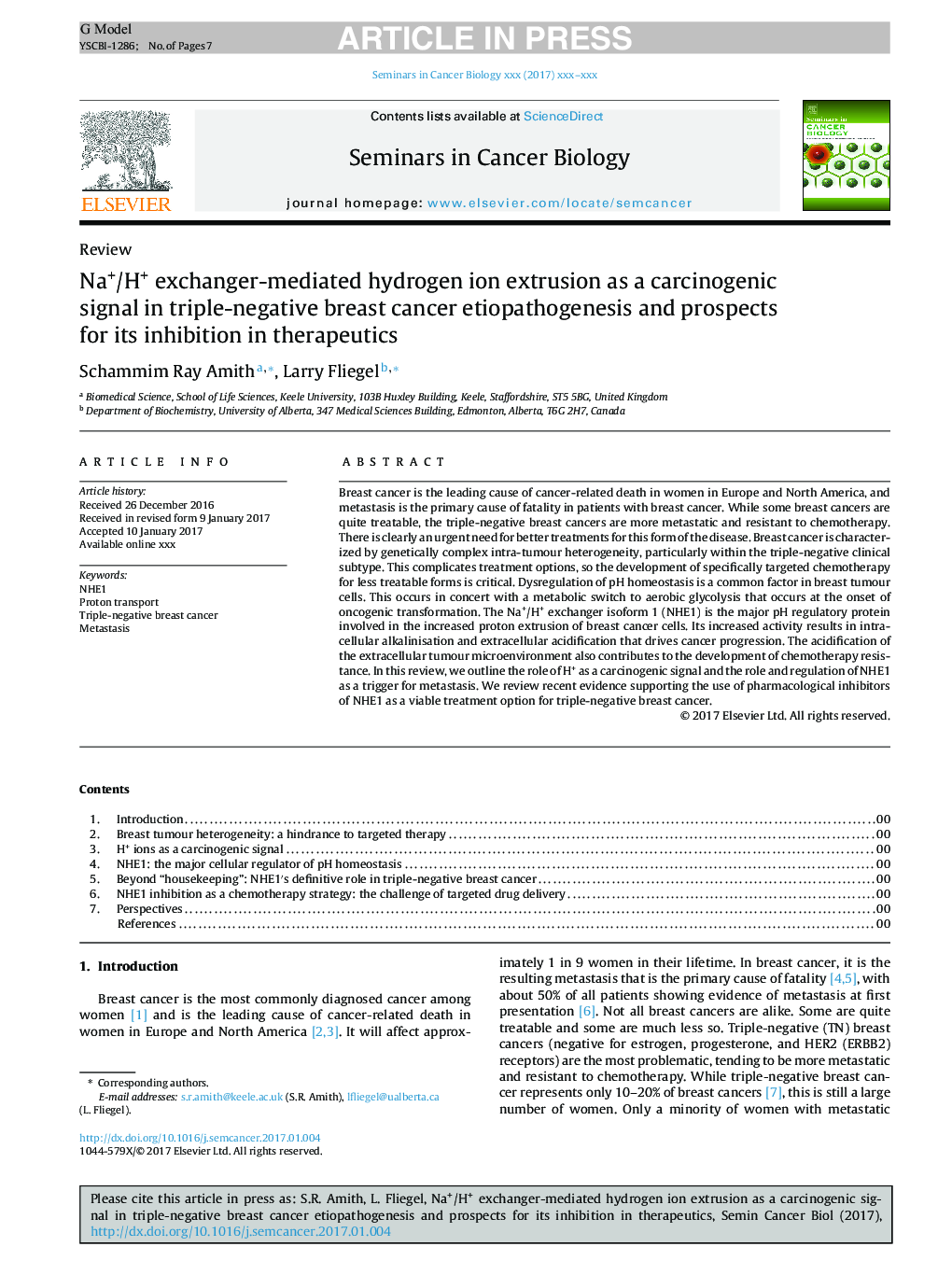| Article ID | Journal | Published Year | Pages | File Type |
|---|---|---|---|---|
| 8361923 | Seminars in Cancer Biology | 2017 | 7 Pages |
Abstract
Breast cancer is the leading cause of cancer-related death in women in Europe and North America, and metastasis is the primary cause of fatality in patients with breast cancer. While some breast cancers are quite treatable, the triple-negative breast cancers are more metastatic and resistant to chemotherapy. There is clearly an urgent need for better treatments for this form of the disease. Breast cancer is characterized by genetically complex intra-tumour heterogeneity, particularly within the triple-negative clinical subtype. This complicates treatment options, so the development of specifically targeted chemotherapy for less treatable forms is critical. Dysregulation of pH homeostasis is a common factor in breast tumour cells. This occurs in concert with a metabolic switch to aerobic glycolysis that occurs at the onset of oncogenic transformation. The Na+/H+ exchanger isoform 1 (NHE1) is the major pH regulatory protein involved in the increased proton extrusion of breast cancer cells. Its increased activity results in intracellular alkalinisation and extracellular acidification that drives cancer progression. The acidification of the extracellular tumour microenvironment also contributes to the development of chemotherapy resistance. In this review, we outline the role of H+ as a carcinogenic signal and the role and regulation of NHE1 as a trigger for metastasis. We review recent evidence supporting the use of pharmacological inhibitors of NHE1 as a viable treatment option for triple-negative breast cancer.
Related Topics
Life Sciences
Biochemistry, Genetics and Molecular Biology
Biochemistry
Authors
Schammim Ray Amith, Larry Fliegel,
